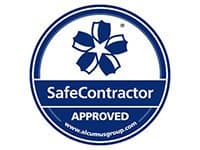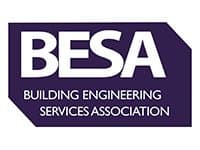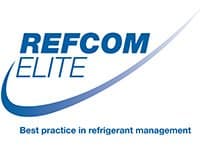Any employer who has air conditioning installed in their offices needs to be aware of the current regulations regarding ongoing maintenance and performance. Many of these legal requirements are geared to not only keeping everyone safe but also lowering carbon footprints and greenhouse gas emissions across the board.
Staying on top of the legal obligations when it comes to air conditioning can be difficult for businesses of all sizes to understand, so here’s a quick breakdown of what it means for your office:
Maintenance
Employers have an obligation to provide a suitable working environment for everyone using their premises, including offices. Most do this through an efficient air conditioning installation. As a business you are obligated to ensure that this system is properly and regularly maintained, a process that also includes clean air issues and the impact on the environment of your system.
Equipment that contains fluorinated greenhouse gases, as well as other chemicals that can cause ozone depletion, need to be checked for leaks and appropriate measures taken to ensure they operate efficiently. All maintenance needs to be carried out by a certified operative and businesses must keep records of all inspections and work undertaken.
Regulations
There are several pieces of legislation and EU directives that relate to air conditioning installations and their maintenance. The major legal requirement of maintaining these systems properly are contained in The Workplace (Health, Safety and Welfare) Regulations 1992. Employers are also under an obligation to make relevant information available to their workforce through The Health and Safety (Consultation with Employees) Regulations 1996.
In recent times, EU regulations have meant that all commercial, industrial and public sector organisations have a responsibility to manage and control F-gases. Inspections need to be carried out between every 12 months down to every 3 months depending on the size and age of the air conditioning installation. The Energy Performance of Buildings Directive (EPBD) also states that any system over 12 kW must have a regular inspection regime in place.
Many older systems used R-22 as a refrigerant for air conditioning but as of January 2015 all sales of R-22 refrigerant are prohibited. That includes for the purpose of servicing and maintaining equipment. Most businesses with air conditioning installations in Bristol have opted either for an audit and phasing out of R-22 to make sure they are compliant or have decided to install a new system altogether.
Documentation
Keeping your documentation up to date is key if you want to stay on the right side of the current legislation. All operators that have 3 kg or more of F-gases must keep records relating to the type and amount of gas installed, the details of the company carrying out inspections and the dates and outcomes for leakage checks and other maintenance. The operator also needs to ensure that the person or company carrying out the inspection is properly certified to do so.
If you’re looking for office air conditioning installation in Bristol and surrounding areas, TEK can help. You can request a quote by calling TEK today on 01179 523355 or use our contact form for a quick response






